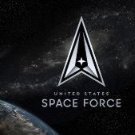Members Can Post Anonymously On This Site
Remarks by CSO Gen. Chance Saltzman at the SpOC change of command ceremony
-
Similar Topics
-
By NASA
Explore Hubble Hubble Home Overview About Hubble The History of Hubble Hubble Timeline Why Have a Telescope in Space? Hubble by the Numbers At the Museum FAQs Impact & Benefits Hubble’s Impact & Benefits Science Impacts Cultural Impact Technology Benefits Impact on Human Spaceflight Astro Community Impacts Science Hubble Science Science Themes Science Highlights Science Behind Discoveries Hubble’s Partners in Science Universe Uncovered Explore the Night Sky Observatory Hubble Observatory Hubble Design Mission Operations Missions to Hubble Hubble vs Webb Team Hubble Team Career Aspirations Hubble Astronauts News Hubble News Hubble News Archive Social Media Media Resources Multimedia Multimedia Images Videos Sonifications Podcasts e-Books Online Activities Lithographs Fact Sheets Posters Hubble on the NASA App Glossary More 35th Anniversary Online Activities 2 min read
Hubble Spots a Chance Alignment
This NASA/ESA Hubble image features the spiral galaxy NGC 5530. ESA/Hubble & NASA, D. Thilker The subject of today’s NASA/ESA Hubble Space Telescope image is the stunning spiral galaxy NGC 5530. This galaxy is situated 40 million light-years away in the constellation Lupus, the Wolf, and classified as a ‘flocculent’ spiral, meaning its spiral arms are patchy and indistinct.
While some galaxies have extraordinarily bright centers that host a feasting supermassive black hole, the bright source near the center of NGC 5530 is not an active black hole but a star within our own galaxy, only 10,000 light-years from Earth. This chance alignment gives the appearance that the star is at the dense heart of NGC 5530.
If you pointed a backyard telescope at NGC 5530 on the evening of September 13, 2007, you would have seen another bright point of light adorning the galaxy. That night, Australian amateur astronomer Robert Evans discovered a supernova, named SN 2007IT, by comparing NGC 5530’s appearance through the telescope to a reference photo of the galaxy. While it’s remarkable to discover even one supernova using this painstaking method, Evans has in fact discovered more than 40 supernovae this way! This particular discovery was truly serendipitous: it’s likely that the light from the supernova completed its 40-million-year journey to Earth just days before Evans spotted the explosion.
Facebook logo @NASAHubble @NASAHubble Instagram logo @NASAHubble Share
Details
Last Updated Mar 28, 2025 Editor Andrea Gianopoulos Location NASA Goddard Space Flight Center Related Terms
Hubble Space Telescope Astrophysics Astrophysics Division Galaxies Goddard Space Flight Center Spiral Galaxies The Universe Keep Exploring Discover More Topics From Hubble
Hubble Space Telescope
Since its 1990 launch, the Hubble Space Telescope has changed our fundamental understanding of the universe.
Hubble’s Galaxies
Hubble’s 35th Anniversary
Hubble’s Night Sky Challenge
View the full article
-
By Space Force
Chief of Space Operations Gen. Chance Saltzman visited Air Forces Southern (AFSOUTH) headquarters Feb. 27, reinforcing the increasing role of space-based capabilities in the Western Hemisphere.
View the full article
-
By Space Force
Chief of Space Operations Gen. Chance Saltzman spelled out the Space Force’s priorities and the path it must follow to ensure space superiority during a high-profile keynote address March 3.
View the full article
-
Remarks by CSO Gen. Chance Saltzman at the 2025 Air and Space Forces Association’s Warfare SymposiumBy Space Force
Remarks by CSO Gen. Chance Saltzman at the 2025 Air and Space Forces Association’s Warfare Symposium.
View the full article
-
-
Check out these Videos




Recommended Posts
Join the conversation
You can post now and register later. If you have an account, sign in now to post with your account.
Note: Your post will require moderator approval before it will be visible.